There is something about emerging from lockdown from the dread beast COVID that is akin to the end of a war. The bombs have stopped, blackout has been repealed, and despite never-to-be-forgotten casualties, we have emerged, blinking like moles, into the sunlight, desperate for a real coffee and no more whale meat fritters.
I vaguely remember a time, in the wild old days of 2019, that in our glorious city of Melbourne life was normal, or whatever usually passes for normal. The Central Business District was its usual hotbed of people standing still in other people’s paths to text their partners about big issues, such as what to pick up for dinner. Delivery mopeds tangoed with traffic while bespoke-suit-clad senior public servants yawned in those long lunch recovery vehicles known as Ubers.
Baristas were, as they have and always will be, the city’s gods and guardians, cunningly disguised as ironically suspendered hipsters. Benevolently ruling our fair metropolis with a swish of caffeine scented steam, a stylish hand with latte foam, and beautifully pomaded handlebar moustaches, they kept the charmingly cobbled alleys of our great foodie city safe from invaders and those upstart Sydney-siders.
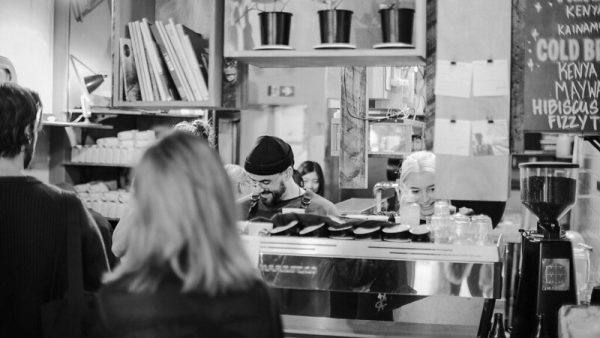
‘Feeling sick’, ‘being poorly’, were snuffle-soaked tissues of terms, usually dealt with by ingesting some minor meds and trotting off to work feeling like hell. Germs were then spread wholesale through keyboards, phone headsets and air conditioning to everyone in the workplace and their families, then their families’ friends and, eventually, the world as one knew it, finally ending with the barista gods closing the gates for a week or so, until the denizens of their city were once again safe – or so they thought – to order a short double shot Mac, no top up.
It was, in our pre-COVID innocence, the best of times. Because if the rest of Australia is surf and sun, Melbourne is single-roasted coffee beans picked by temple virgins in the fabled lost city of gold. And with a coffee on board, we can work through a pandemic, because with Melbourne coffee and Melbourne food, we scoffingly said there could never be a pandemic.
Or so we thought. But hey – we’re cool, but we’re not Delphic Oracles.
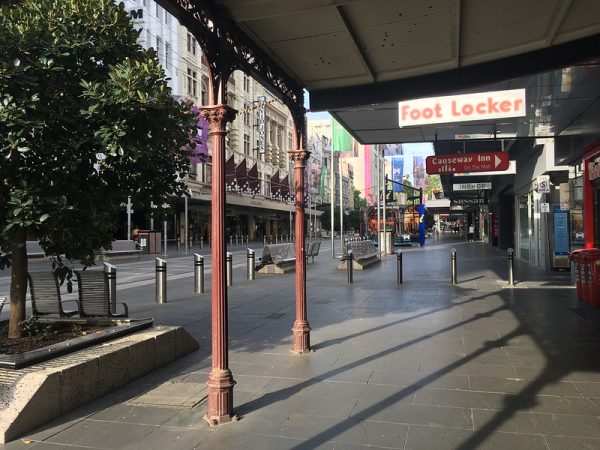
Because what we’ve emerged back into, as we tear down the blackouts, are new societal norms of company from the otherness of solitude.
Or, at least, many of us have.
Solitude for the chronically ill, or for those with a disability, or both, did not end with the all-clear. Nor does the rationing of loneliness suddenly stop. The business of being alone is endemic for those who are too tired, too unwell, or incapacitated due to a lack of support.
So many said of COVID restrictions that they ‘nearly went mad’ with the solitude. That the lack of physical contact, of ambient noise and chatter, almost broke them. But others… well, others saw that solitude can also hold beauty. For them, it didn’t need the reality of a health crisis to induce new habits. For many of these individuals, they learned a truth already evident to we who have no choice but to spend most of our time alone: solitude does not have to equal loneliness, and being alone can bring its own kind of grace.
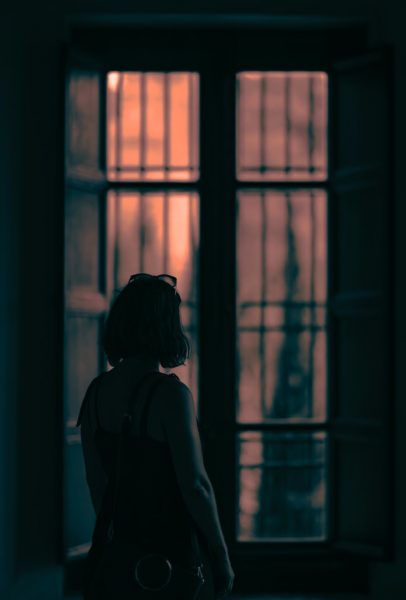
Because even more evidently during lockdown, the world roared on 24/7. Streaming services. Podcasts. Virtual meetings. Visual calls to loved ones halfway across town, or halfway across the world. The urge to simply be still and quiet was so frightening to people that when we could (and of course in many places people couldn’t, and still can’t), we humans adapted to a life lived wholly via technology. It was the loudness of social get-togethers delivered via laptop and smartphone.
As Heraclitus said, the only constant is change. But a change into what?
When the initial COVID-19 lockdown was announced for Melbourne in March 2020 by ‘Dan the Man’, aka Premier Dan Andrews (currently not in great shape himself from a serious fall down some stairs), Melbourne – and I do say Melbourne, because often these lockdown restrictions were Melbourne specific, rather than Victorian – went into… well, panic. But weird panic. Buying enough loo paper to papier-mâché a substantially decent sized Work From Home suite. Stockpiling other odd items, such as dry pasta. And socks. Some individuals didn’t act well as part of a community in distress, and when we went into our almost four-month hard lockdown, behaved even less well.
Dressed in the same North Face active wear for the duration of the emergency – ours but to reason why – Dan was humble. Ubiquitous. And he had the face of someone who would never rat out his chums, despite a caning from the Headmaster. In other words, a good man in a crisis.
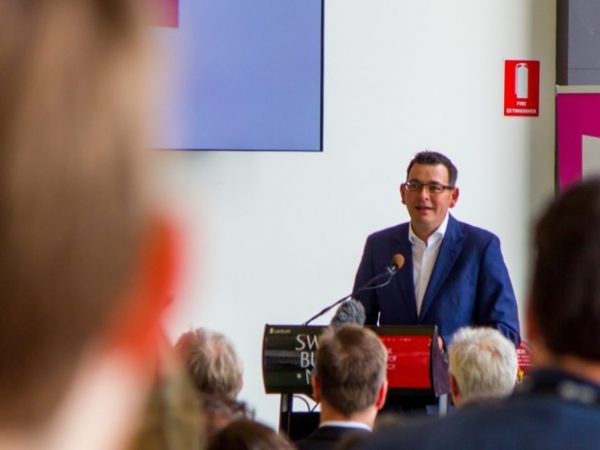
However, this being the human race (read: no batteries or instructions included), these same ‘Pandemic? I don’t see a pandemic. What pandemic?’ individuals with normal access to grocery shops, attacked these shops for withholding stores and ‘closing’. In fact the shops did not close but, just like pharmacies, petrol stations, and other essential services, rather communicated honestly and openly every day that nobody needed to stockpile; that there was more than enough food, alcohol (huzzah), medicine – you get the drift – for everyone.
But what has all this panic buying to do with solitude, I hear you ask?
Good question. I thought then, and still think, that the thought of being home alone so frightened some people that they behaved badly just to keep being seen.
I have a chronic illness and a disability. By virtue of this, I spend a lot of time in solitude – whether through fatigue, an immune system that lights up like a firework when a butterfly sneezes in the Amazon, extreme pain, or a shaken-not-stirred combo of the above.
I am often alone. I am often not seen. But I can say with absolute honesty this; I am not often lonely.
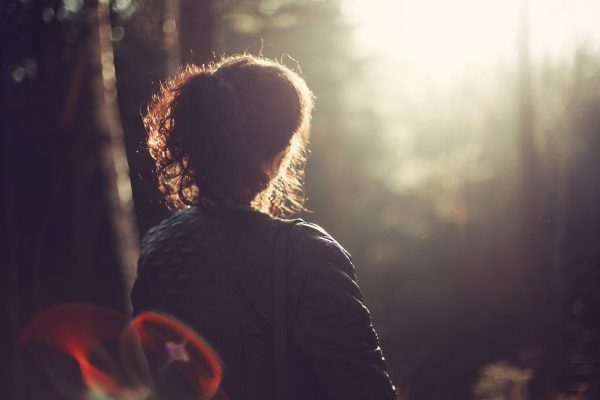
Those healthy, active individuals who reached this quiet revelation in the bizarre, artificial quarantine of the sofa, gained what I like to think of as a superpower.
The ability to enjoy their own company.
The hoarding, the shrill anger at being involuntarily housebound, reflected a lack of empathy on the part of some people without disabilities who, faced with time in an enforced lockdown situation, had the opportunity to learn what it is to live always, rather than for a few months, with solitude. Some used that opportunity; many didn’t, or (especially those with mental health problems) couldn’t.
Everyone – to a larger or lesser extent – has been affected negatively by the conditions imposed on us by COVID. This is a global disease, and it is nobody’s fault. It has created a worldwide disability; that of being unable to function in a normal, everyday manner. For some of us, everyday life sans global pandemic includes assistance with showering, dressing, walking… eating. This is part and parcel of what we face as members of a tribe of millions; the disabled and chronically ill. But with the onset of COVID, suddenly those who had never before experienced sanitary protocols had to learn how to wear a mask properly. To wash and use hand protection properly. To admit immediately when they were unwell and rather than hiding under the blankets with the cat to blow their nose on, get tested for it. Right now. Please.
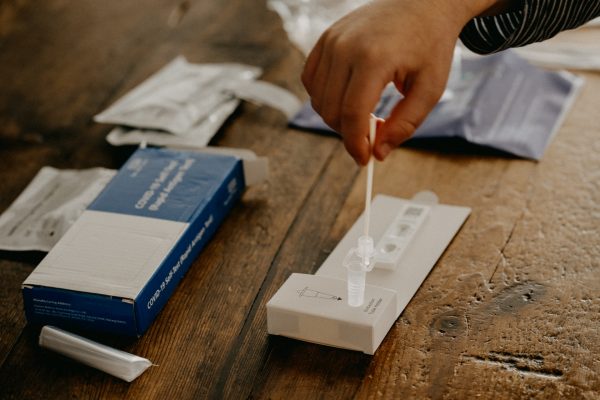
Lockdown for most has, fingers crossed, become a receding memory of frenzied sourdough starters and rapidly abandoned monster jigsaws. But for those who understand solitude, rather than busyness, they’ll also appreciate the following.
For those of us trapped in our own bodies, lockdown is infinite.
And therefore, for many individuals and much of the time, so is solitude. We’re the old lags of the system, doing porridge for life.
I am rarely lonely. I am often alone, and in a place of solitude, but this is not frightening. It is peaceful. I am able to take time in calmness. Write, when my hands behave. Set up mock historical battles between the cats when they’re not. It took me a few years to figure out the loneliness versus solitude difference and, to be blunt, I’m not sure I ever would have if not for my disability. This is not to say I don’t find it tough. I do. But my point is this. I saw so many people without disabilities struggle during COVID – and who continue to struggle (I am so thankful Melbourne took such a hardline for selfish reasons, ie keeping me alive) – because they have never been restricted before in mind or body.
And I am genuinely frightened for them. We are seeing the mental health effects now on those who have been in long-term lockdown – and when questioned, not one of them said ‘I coped okay with the solitude’. And even though now, for many, restrictions have lifted, our psychologies of face-to-face life have changed, possibly forever. Some may gnash teeth and wail at this, and launch into a frenzy of activity; but others will sit somewhere quietly, rediscovering their own thoughts.
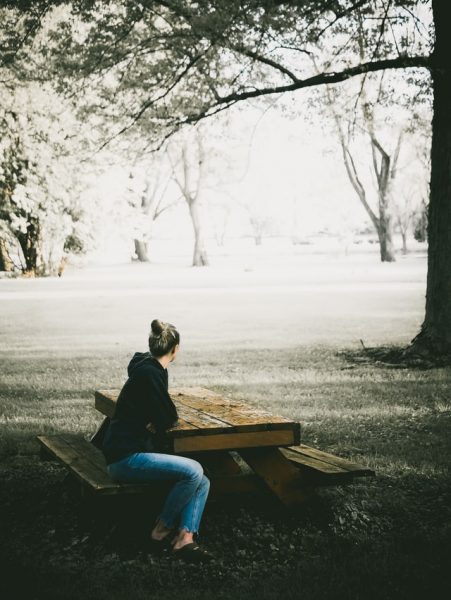
This is what illness brought me many years ago. I’m not saying I didn’t gnash my teeth at first, but gradually I learned to relish the solitude. Do I love it all the time? Of course not. I’m not a misanthrope. But it’s a reality, so why not revel in it?
So perhaps, just perhaps, when rattling away in a café, relishing the renewal of society (and good coffee -oh how I love thee, let me count the beans) while admiring the barista’s brand new suspenders, bear this in mind.
Don’t dismiss the occasional desire to choose a spell in solitary. It’s amazing what quiet does for the soul. But maybe, sometimes, call a friend who resides there permanently.
Lifers like to see the sunlight that is other people, too.
Kate Stone Matheson works within the mental health advocacy field, assisting workplaces to embrace and emphasise mental well-being, inclusion, and allyship. She is an ex-journalist, amateur photographer, current writer at her site A Difficult Woman, and, as someone with Young Onset Parkinson’s, a proud ambassador for Shake It Up. She currently resides in Melbourne, Australia with her husband, and is gradually coming to terms with a new outlook on life – from a wheelchair.